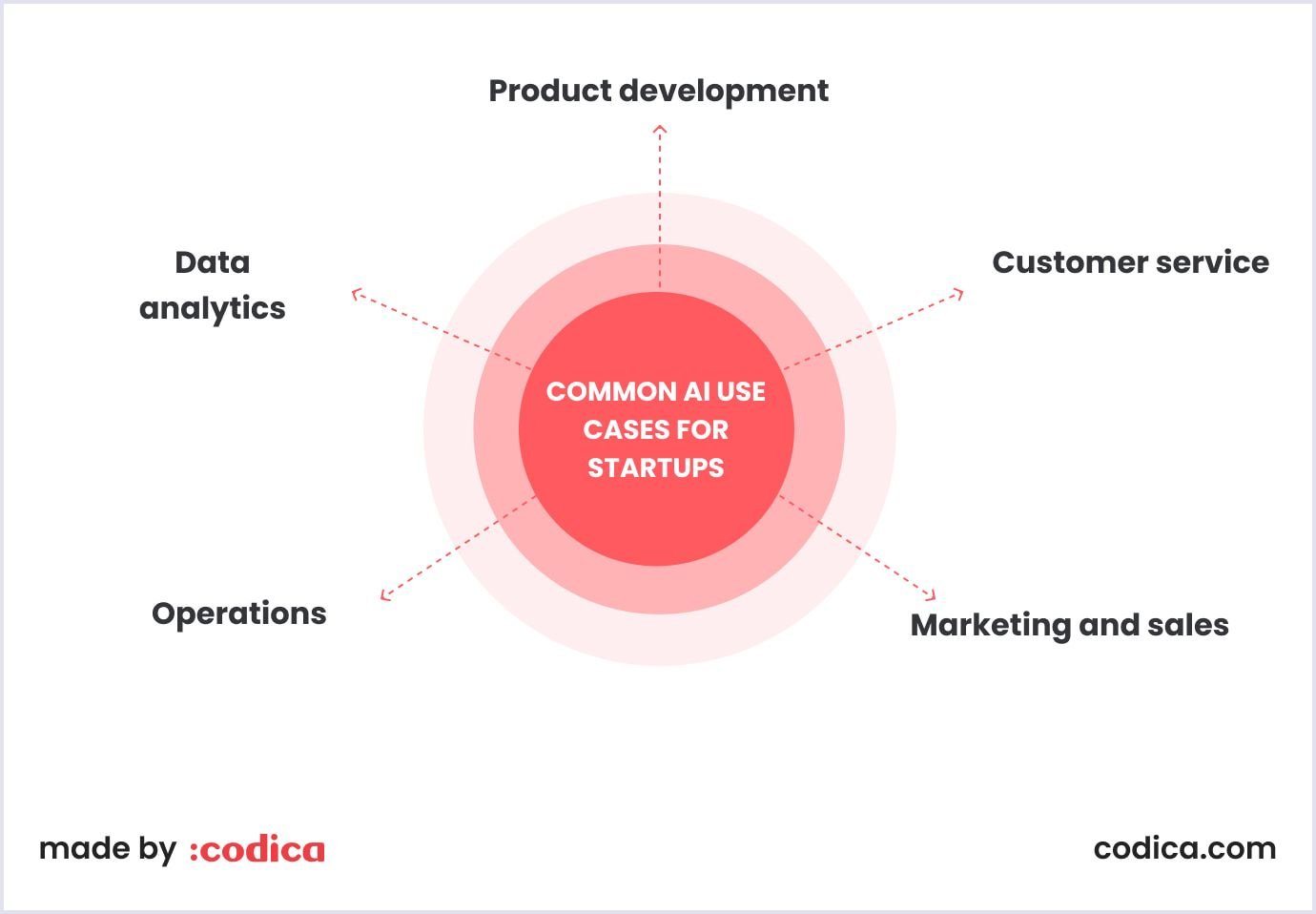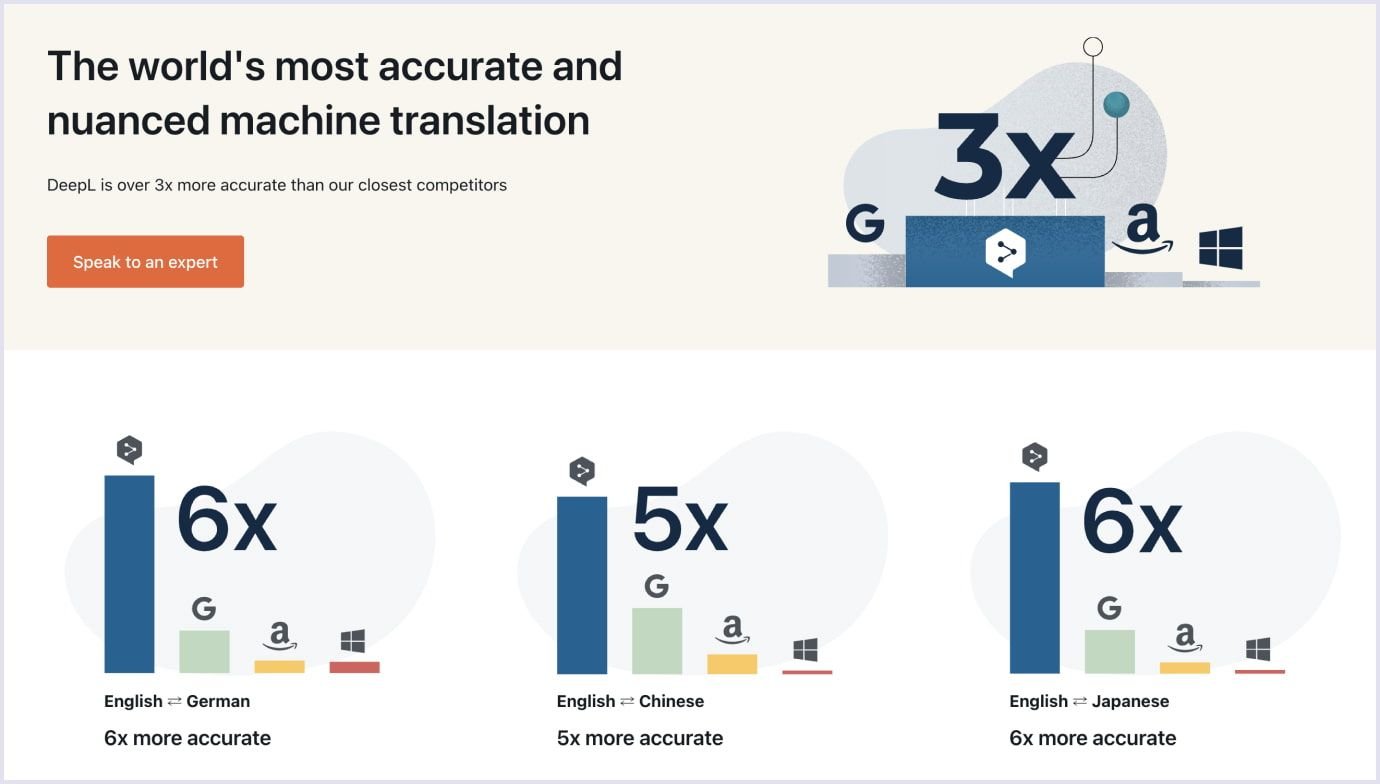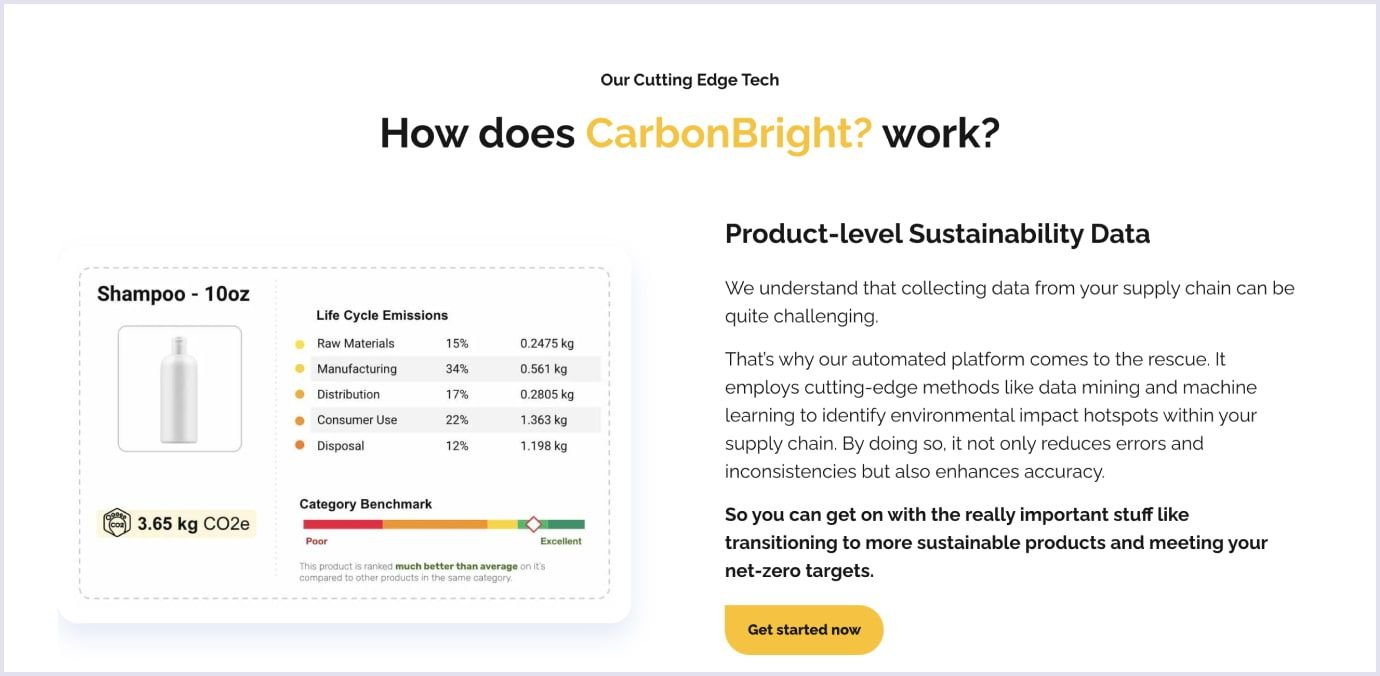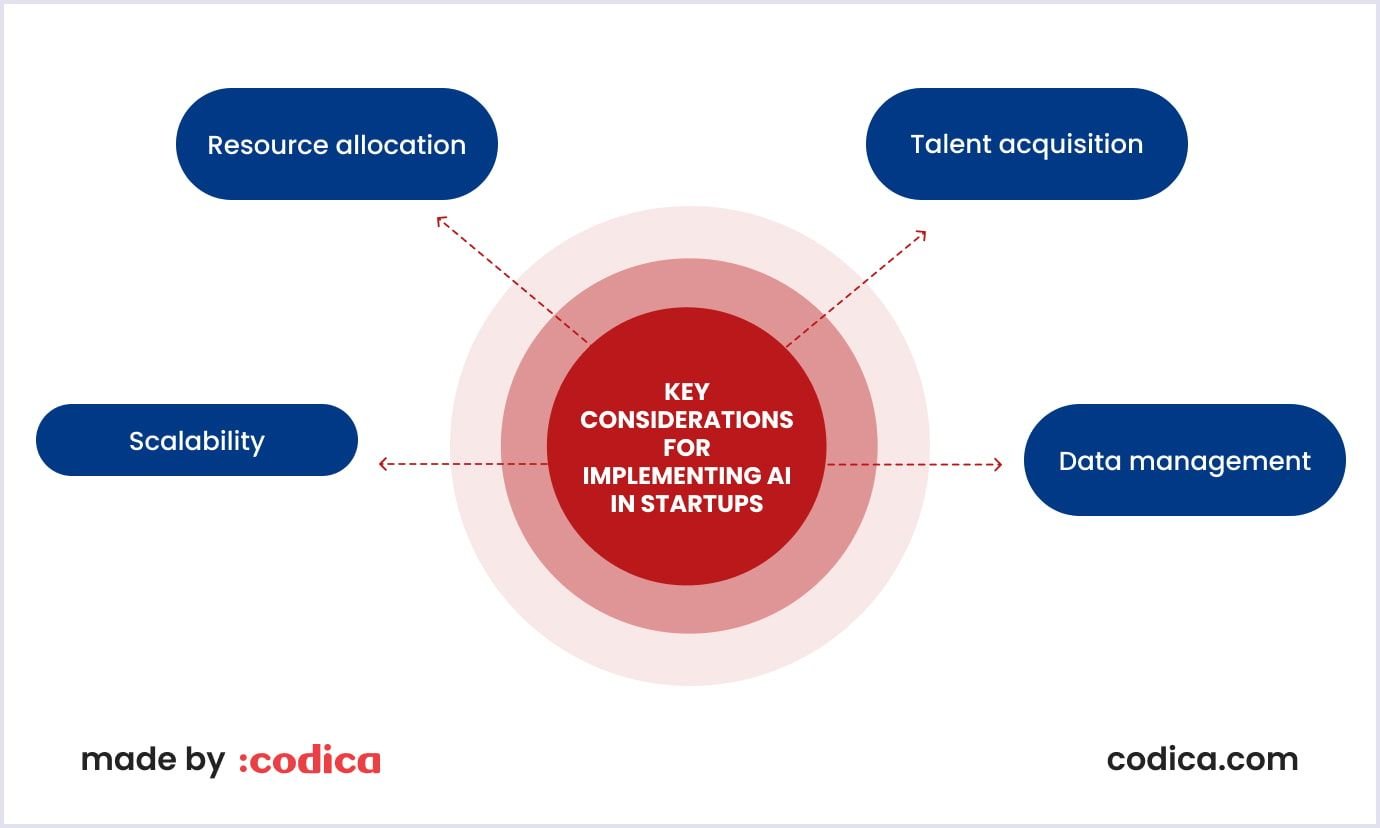Startup development is quite similar to general software development, yet it’s much more risky and is often riddled with issues. For instance, startups often operate with limited resources, have a small amount of workforce and are dependant on a time frame.
AI integration tackles all potential issues in its own way, offering unique benefits for startup founders. In this piece, we’ll take a closer look at what exactly is AI’s role in early-stage success for startups.
The growing relevance of AI for startups
The adoption of AI in startups has evolved significantly over the past decade. Initially, only tech-savvy and well-funded startups could afford to experiment with AI, primarily for niche applications like machine learning algorithms for data analysis.
Over the years, advancements in cloud computing, open-source AI tools, and affordable AI services have democratized access to AI. This shift has allowed even small startups to use AI for tons of applications.
After all, AI has become an essential part of startups, enabling them to compete with established players by leveraging advanced technologies to optimize operations, enhance customer experiences, and innovate rapidly. As the startup ecosystem becomes more competitive, AI provides the tools needed for early-stage companies to thrive and scale efficiently. The integration of AI offers several benefits for startups, including:
- Enhanced efficiency. AI automates mundane tasks, which ultimately improves overall productivity, not to mention operational cost reduction.
- Data-driven insights. AI provides startups with valuable insights from large datasets, enabling data-driven decision-making and strategy formulation.
- Scalability. AI solutions are scalable, allowing startups to grow and expand without proportional increases in resource investment.
- Innovation. AI fosters innovation by enabling startups to develop new products and services, keep up with the market, and change approaches based on user desires.
- Competitive advantage. Startups leveraging AI can differentiate themselves from competitors through superior customer experiences and innovative offerings.
Common AI use cases for startups
As previously mentioned, AI changed the game for startups in many areas. Here are some common AI use cases that can significantly enhance a startup’s capabilities.

Product development
In any type of development, AI plays a helping role, assisting developers to approach the process smarter and come up with more innovative products. For instance, it provides ideas for:
- Predictive design. Certain AI-powered algorithms help developers predict product performance and identify potential issues during the design phase. Therefore, this data can be used to reduce efforts on extensive prototyping and testing.
- Personalized products. With AI integrations, startups can get a grasp of user data and behavioral patterns to develop products that suit individual customer desires.
- Rapid prototyping. AI-based startups can accelerate the prototyping process by generating multiple design variations and optimizing for specific criteria, such as cost or performance.

Customer service
Another popular niche where artificial intelligence for startups is regularly implemented is customer service. To help users find their way around the platform, resolve issues, and find answers, startups implement AI. It, in turn, offers:
- Virtual assistants. Various types of chatbots are capable of providing instant responses to answers and handling a significant volume of them, even without human intervention. They often answer basic questions, provide info on orders and their status, and much more.
- Sentiment analysis. To improve customer service, AI tools can be used to analyze feedback and mentions of your startup online. Next, all you need to do is to find a way to address issues people raise to improve satisfaction.
- Personalized support. AI can analyze customer data to provide personalized support recommendations, improving the overall customer experience.
Read also: AI Chatbots: Your 24/7 Customer Support for Marketplaces
Marketing and sales
AI is commonly used to optimize marketing efforts and increase sales. For instance, there are tons of applications. Hence, you can use its capabilities to:
- Personalize marketing. Certain tools can help you analyze various aspects of the buying process to create personalized marketing campaigns.
- Forecast sales. AI is awfully good at analytics, and it can be easily used to analyze both existing sales patterns and forecast future sales trends. With such insights, you can manage inventory, staffing, and marketing strategies with ease.
- Segment users and buyers. AI enables more accurate customer categorization, allowing you to target specific groups with personalized marketing campaigns.
Operations
Apart from marketing, development and support, AI startups also have tons of various operations, both internal and external, that need to be taken care of. Therefore, here are a few operations AI can help you deal with:
- Supply chain management. In marketplaces and ecommerce startups, AI can help with tons of computation. Say to optimize how the supply chain operates, AI can predict demand, and suggest improvements on inventory levels. This, in turn, leads to improvements and clarification of processes in logistics.
- Process automation. Controlling operations in AI startups takes resources and manpower. With AI integrations, you can automate generic tasks like scheduling and reporting, data entry, and much more.
- Quality control. Apart from improvements, AI-powered inspection systems can also safeguard your platform. They, for instance, can analyze the financial side of things, protect your platform from cyber threats, and detect defects and anomalies in products.
Data analytics
For any company and startup, the data is a precious asset that can be used to train AI and make it even more powerful for your specific tasks. For example, the data you collect can be used in:
- Predictive analytics. It is often based on historical data, which AI analyzes and then makes assumptions about future trends.
- Real-time insights. With a lot of data on user experience, sales statistics and more, AI can process it and share insights, patterns, and tips you can use to conquer the market.
- Business intelligence. AI-driven analytics tools provide comprehensive business intelligence, enabling startups to identify opportunities, optimize operations, and drive growth.
Examples of AI in Successful Startups
DeepL
Originally, DeepL was a basic translator app with good accuracy and a wide range of supported languages. Yet, over time, it evolved to a super strong startup, covering a wide range of applications.
As of today, not only does it offer a translator but also a DeepL Write, which is a tool that helps you both write and enhance your writing using AI. DeepL’s neural networks excel at capturing subtle nuances and reproducing them in translations and writing like no other service.

METHOD4U
A Ukrainian social enterprise, METHOD4U, is dedicated to providing psychological assistance to victims of Russian military aggression, combatants, critical infrastructure workers, and volunteers. This platform helps highly qualified and verified psychologists, psychiatrists, and psychotherapists ensure high-quality support for all in need. With AI, METHOD4U is able to find the most suitable specialists for various customer requests.
CarbonBright
Lastly, let’s cover CarbonBright, a tech startup transforming supply chain sustainability for consumer packaged goods (CPG) companies. Its AI-powered carbon measurement platform allows organizations focusing on consumer packaged goods to see the product’s environmental footprint right away, even with insufficient data.
Read also: Artificial Intelligence Examples: How Alibaba, Amazon, and Others Use AI
This AI integration makes it really easy for CPG companies to identify their Scope 3 emissions and decide how to reduce their product impacts, enhancing supply chain sustainability.

Key considerations for implementing AI in startups
Regardless of benefits and examples, implementing AI in startups requires careful planning. Therefore, the most common considerations include:

Resource allocation
First of all, the main resource you should manage is the budget you allocate to AI development and implementation. In fact, startups need to allocate sufficient budget for AI projects, covering costs like software, hardware, data acquisition, and personnel. It's crucial to have a clear understanding of the financial commitment required and to plan for both initial and ongoing expenses.
Secondly, consider if you are satisfied with existing AI tools and platforms or if you need to develop custom solutions. Existing tools can reduce costs and speed up implementation, but custom solutions may offer better alignment with specific business needs. This decision should consider factors like cost, time, and the unique requirements of the startup.
Talent acquisition
When it comes to implementing AI, building a competent team first is essential. Therefore, you should look for talents with expertise in AI, ML, and even data science. Hiring experienced employees can be super beneficial for translating their skills and expertise to the team, driving successful AI initiatives.
In addition to hiring new talent, upskilling your in-house employees also matters. Providing training and development opportunities in AI and machine learning can help integrate AI more smoothly into the existing workforce, leveraging your domain expertise.
Data management
As you know, AI systems rely on huge amounts of qualitative and processed data to work effectively. Therefore, from your end, providing accurate, relevant, and up-to-date data is mandatory. Yet, maintaining data privacy and security is another consideration. Your startup must comply with relevant regulations and standards to protect customer data, as well as implement solid security practices.
Scalability
Another thing you’ll stumble upon is scalability and a myriad of issues connected with it if not thought of beforehand. In short, the AI solutions you implement should be designed with scalability in mind to continue working as your business evolves. Once it does evolve, your integrations should be able to work increased loads and volumes of data while also resolving more complex tasks.
Additionally, always remember to leave room for more functionality you may need in the foreseeable future. The AI market is rapidly growing, and your startup must remain flexible to incorporate new advancements. Therefore, adopting modular and adaptable AI frameworks can help in this matter.

How Codica supports startups with AI integrations
At Codica, we provide several services, each fitting a different aspect of software development. Notably, our AI development services is a one-stop-shop if you’re a startup owner seeking to enhance your creation with AI.
Our AI development encompasses a lot of services, all offering something unique to the table. Therefore, we deliver:
- AI as a Service (AIaaS). A scalable infrastructure for complex AI solutions, saving time and resources on in-house development and maintenance.
- Natural language processing (NLP). We integrate NLP for processing text or voice data and conducting sentiment analysis.
- Expert systems. We power up the performance and user engagement with AI solutions like recommendation engines and diagnostic tools.
- Automation solutions. We build and integrate automation tools like robotic process automation (RPA) to streamline workflows for businesses.
- Neural networks. We implement and train neural networks for various tasks, gaining invaluable insights through deep learning.
- AI security. We know how to protect your AI solutions against cyber threats with our AI security services, adhering to the latest cybersecurity standards.
- AI design. We design user-friendly AI systems, including chatbots, to make AI solutions more accessible and humane.
- AIOps. We ensure continuous and optimized workflows by visualizing logs, metrics, and performance data with our AIOps specialists.
Furthermore, we are aware of the ever-changing needs in various industries. Thus, our experience allows us to work with online marketplaces, ecommerce, healthcare, automotive, and many other industries. Feel free to find more of our work in our portfolio.
Conclusion
After all, AI integrations often help to shape early-stage success for startups. The sheer number of benefits AI tools provide can positively impact your startup’s growth, providing much-needed scalability, support, and analytics.
Integrating it, on the other hand, can be tricky without a professional development team. Therefore, feel free to contact us. Our experts would gladly consult you on the most intricate parts of the AI integration, as well as provide time and cost estimates.
